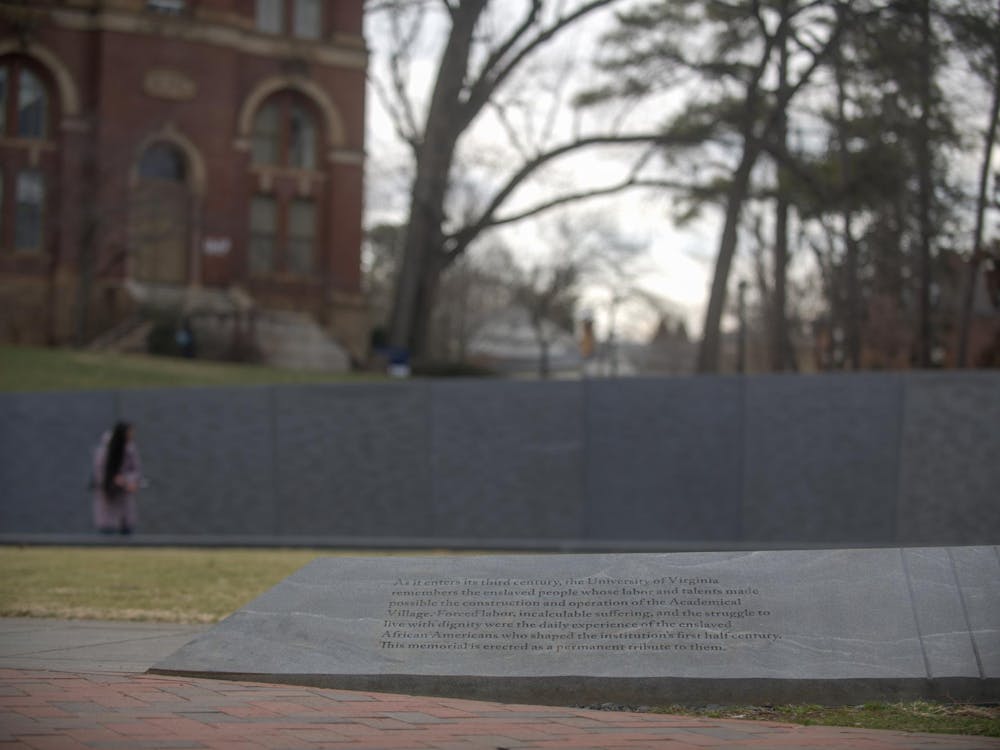It all started on a baseball field. Not a typical field with freshly trimmed grass and carefully drawn lines, but a field of solid blacktop with a skate park interrupting right field. Trash littered this sand-less sandlot located in the Lower East Side of Manhattan, but the boys who played there paid no attention to these poor conditions. This scraggly field in Tompkins Square Park was their home away from home; it was all they had.
Michael Rosen, who spoke last week at the New Dominion Bookshop on the Downtown Mall, lived near this ballpark in the Lower East Side with his wife, Leslie, and two sons, Ripton and Morgan. Rosen, author of the newly-published "What Else But Home: Seven Boys and an American Journey Between the Projects and the Penthouse" would eventually show these youths in the dilapidated park that a family is more than just blood relations and legal matters - it's a safe haven where love is unconditional.
Rosen, formerly an investor and real estate developer, lived with his family in a luxury penthouse in the Tompkins Square Park area. In the summer of 1998, Ripton, then 7-years-old, joined in a pickup baseball game at the scraggly ballpark. He invited several of the kids back to his home to play Nintendo and began to form strong bonds with the boys.
The occasional visits with Ripton soon changed to daily visits to the Rosens' penthouse for an array of juice boxes, pizza and chips alongside some serious video-gaming. Eventually, five of the original gaggle continued to return despite increasingly strict rules enforced by the Rosens. These five black and Latino boys - Carlos, Philippe, William, Kindu and Juan - eventually became a part of the Rosen Family Extended and would live in the Rosen home for a period of their young lives.
Although the Rosens never formally adopted the boys, they were essentially adoptive parents, helping to guide them through high school and into college and the working world. With a total of seven boys in and out of their home, Michael and Leslie were not more than ordinary parents. When asked if he was ever overwhelmed and felt like this "adoption" was too much, Rosen responded with a chuckle, "Every weekend."
Although the Rosens took on many of the responsibilities of raising the boys, the boys' biological families remained in their lives.
"Some of their mothers been very supportive, and none have been negative," Mr. Rosen said in an interview with PublicAffairs, who published his book.. "We've had less touch with some. The boys have grown to be our sons, but they are always first their mothers' children."
Today, the boys are "less boys and more young men rushing through life. What they're doing changes every day," he said.
Carlos and Kindu are both currently pursuing college degrees.
While some might call Rosen a hero, the author said he wouldn't use that term.
"My heroes are Martin Luther King Jr. and Gandhi, [and those] who build their lives around social justice and believe in ending racial injustice," he said. "What happened to us was accidental."\nTaking five underprivileged kids into one's home isn't an everyday affair, but it isn't unheard of.
"I've met more and more people on the road who have done exactly what we did," Mr. Rosen said. "They've taken children into their home and parented them. That's all we did; I've just happened to write about it."
Not only has he adopted and mentored seven children and acted as a father, but he has also co-founded the East Village Community Coalition in New York City.
"Our neighborhood has been a portal for waves of immigrants, and that immigrant heritage speaks tremendously about what America can be," Rosen said. "You become a portal for any single kid whose life you help turn around."
Working to preserve this neighborhood, Rosen and the EVCC rezoned the area, he said. The EVCC has been successful in prohibiting the building of high rises, "because they take away from the street-level community by their nature; people can't hang out on the stoops," he said.
Other future goals of the EVCC include doing away with franchises and chain restaurants, which Rosen said he believes "eliminate diversity. They destroy jobs that give a working wage. Instead of having profits flow to 'mom and pop' organizations, they are pooled to [CEO Howard] Shultz of Starbucks."
Along with these social projects, the EVCC also has a string of little league baseball teams for boys from the ages of 7 to 18.
"Organized sports for kids from public housing and poverty are crucial to their success," Mr. Rosen said.
Many of those who heard Rosen speak at the New Dominion Bookshop were inspired by his story. Social worker Judy Zeitler delves into inner-city turmoil daily and is doing her part to help with the ongoing problem of social injustice.
"I would never adopt children from the ghetto, but I am intrigued by Rosen's story because it's a true one," she said. "I work with cases of poverty-stricken individuals and this is a case study."
Rosen said he is optimistic about the possibility of making a difference.
"Potential and kindness are everywhere," he said. "They enable change"






